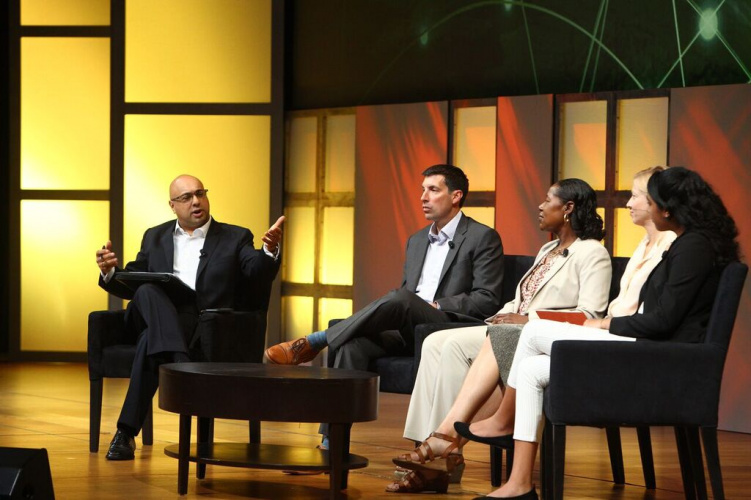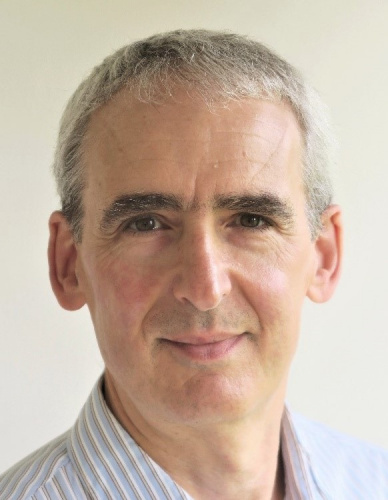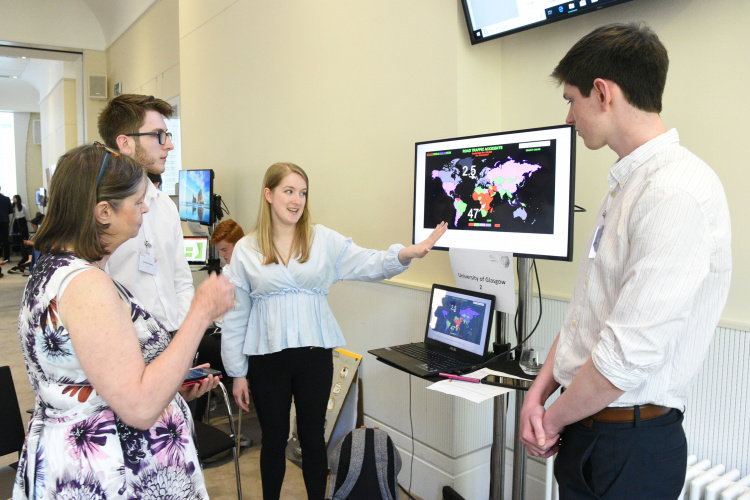
Jointly hosted by the UK, US and Chinese academies of engineering The Global Grand Challenges Summit 2019 is the fourth event of its kind. The event first ran in London in 2013, whilst subsequent summits took place in Beijing and Washington. It was initially inspired by the 14 grand challenges for engineering - a checklist of civilisation-saving engineering priorities compiled by the US National Academy of Engineering in 2008 - and aims to bring together engineers from around the world to discuss and explore how they can work together to address some of the global challenges we face.
Many of the things that we face are global challenges. They are not things that can be solved at a country level and it is very important that we find whatever mechanisms we can to come together and collaborate
This year’s summit, coordinated by the Royal Academy of Engineering, leads with the theme ‘Engineering in an unpredictable world’, but has a particular focus on two key sub-themes: the challenges of sustaining a world of 10 billion people, and ensuring that AI and other transformational technologies have a positive impact on humanity.
The Engineer spoke Dr John Lazar, who is leading the summit on behalf of the Royal Academy of Engineering, about the thinking behind this year’s event and the importance of cross disciplinary and cross border collaboration.
What’s the goal of this year’s summit?
The key goal is to encourage engineers to think big. We do have some big pressing problems as a species and we need to be ambitious about the way we think about them, and also to encourage engineers to attack those in a collaborative way with as much team work and discussion as possible.
What are the main themes this time around?
 This is now the 4th summit. It all keyed off a set of 14 global grand challenges that the US academy penned back in 2008. We’re picking up on that heritage but what we wanted to do was to try and modernise our way of thinking about those challenges firstly to incorporate the UN sustainable development goals but also to bring it up a level and try to simplify it into a main theme and a couple of sub themes so that we could capture all of that in a way that young engineers can appreciate.
This is now the 4th summit. It all keyed off a set of 14 global grand challenges that the US academy penned back in 2008. We’re picking up on that heritage but what we wanted to do was to try and modernise our way of thinking about those challenges firstly to incorporate the UN sustainable development goals but also to bring it up a level and try to simplify it into a main theme and a couple of sub themes so that we could capture all of that in a way that young engineers can appreciate.
We bought it down to those 2 main sub-themes: how does AI and other transformational technologies change humanity for the better? And how do we sustain 10 billion people? It really allows us to capture everything around climate change, water availability energy and so on and to hit all of the UN sustainable development goals.
How responsible are engineers for these problems in the first place? Is this a way for engineers to find a way of undoing the damage that they’ve caused?
There is no question that if we look at the history of humankind every big single step forward for humans has been accompanied by technological breakthroughs. It’s not a banal statement to say that engineers do change the world. But I think that if engineers work in narrow silos and have their heads down and don’t understand side effects or collaboration there’s no question that problems occur.
If engineers work in narrow silos and have their heads down and don’t understand side effects or collaboration there’s no question that problems occur.
A very good example is where we’ve got to with social media. Engineers have brought solutions and provided products and services that people love but there have been unintended consequences. That’s one of the reasons that we are pushing really hard at the summit to make engineers understand that every single problem they solve could have unintended consequences and they have a responsibility to think about those and to collaborate with other disciplines who can provide a different lens on how to solve the problem.
How are you using the summit to work with and to inspire young engineers?
Inspiring and encouraging young people to get involved in engineering, and realising that they can have an impact, but the way they have to do that is working in a cross disciplinary way is really key to what we’re trying to do.

Alongside the summit we also have a big student competition in the run up. Each country is running an in-house student competition where they’re going to pick five teams to produce a business plan to tackle a big theme.
Then we’re going to take all of those 15 teams plus a couple of hundred additional students and mix them up into teams that comprise members from all the different countries and were going to kick them off in a collaboration lab for 3 days where winning teams will be selected to pitch at the summit itself.
Do you also hope to encourage more experienced engineers to think about new ways of working?
I think that the profession is realising that it needs to change. There are some interesting bits of evidence – the first of which is that the academy itself has had a huge focus on improving diversity with the profession over the last couple of years. I think within the international committees that I’m on there’s a huge awareness of sustainable development goals and how we implement those and measure those and educate engineers to deal with those. Also, we recently formed a policy centre to try and knit together more than 30 engineering institutions to make sure all the different engineers work together in a more collaborative way at a policy level. It’s a good example of how you need to break down silos.
How important is international collaboration? And, particularly in the case of China, is it harder to encourage, given concerns over factors such as national security?
The international backdrop is difficult. But this is an area where engineers coming together can help. My experience of working with the Chinese academy is that they’re engineers like us. They see a problem and they want to find a positive solution to it. Many of the things that we face are global challenges. They are not things that can be solved at a country level and it is very important that we find whatever mechanisms we can to come together and collaborate. That’s one of the reasons we mix the student teams up because we want young engineers to understand that overcoming cultural barriers is difficult but it’s achievable and engineers are very good at making that happen.
What have previous summits achieved?
If you look at the 14 grand challenges that the North American academy produced – with things like looking at the cost of solar energy - I do believe that the joint academy focus has led to a feedback loop back into the profession and back into the major engineering universities to encourage people to attack them.
It’s hard to measure but it has raised awareness, it’s bought the academies together and there have been whole lot of collaborative projects where the goodwill that been developed has led to some really interesting work.
How confident are you that engineers can effectively address the challenges under discussion at this year’s summit?
I don’t underestimate the extent of the challenge. If you take something like AI, one of the pitfalls we can fall into is thinking of technological change as being inevitable. I don’t subscribe to that. I believe that if we come together and collaborate properly we can shape it. We don’t have to assume that AI unfolds in some direction that’s inevitable. We have a way to shape it and to contain it and to make it be a force for good but that’s going to take a huge amount of political will and collaboration.
We're at a stage in history where we're facing a rapid change – with some pressing problems – we need to respond with balance, nuance but also urgency. We need to get moving on some of these solutions and engineers are very good at doing that.
Dr John Lazar is a software engineer and business leader. He is a Fellow of the Royal Academy of Engineering, and serves on the Academy’s International Committee.





Poll: Should the UK’s railways be renationalised?
All public service companies should be nationalised for many different reasons, particularly railways, not the least because the tax payer has already...